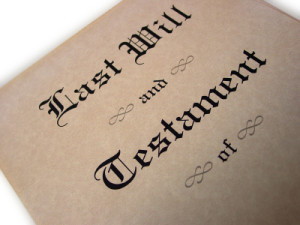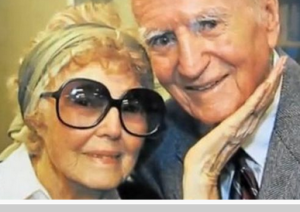WHAT IS THE PROBATE AND ESTATE TAX VALUE OF THE ESTATE?
The person in charge will need to make an inventory of the estate. This inventory is critical to the entire estate settlement process. The inventory will:
- Identify whether a Last Will and Testament, Codicil, Living Trust or other legal documents exist.
- Capture basic information about the deceased, a surviving spouse and other relatives of the deceased.
- List what property the deceased owned, how the property is titled, what percentage the decedent owned, the fair market value of the asset, and any debts the decedent owes.
- Identify what assets are probate assets, what assets have automatic inheritance rights, and what assets are trust assets.
- Identify the location of the tax returns and other documents.
- List any income the decedent receives, including social security benefits
The following questions and answers can help a family member or estate representative prepare the estate inventory.
Q. Where can an executor or family member get the information required to complete the inventory?
A. Hopefully the deceased prepared a Family Treasure Map before he died. If not, the executor or family member will need to search for information and documents to help them create the inventory worksheets.
- The checkbook and prior cancelled checks
- The mailbox
- Paper files
- Conversations with professional advisors: tax preparers, lawyers, doctors
- A safe deposit box
- Conversations with business partners
- E-records
Q. What assets are included in the inventory?
A. Everything the decedent owned, or had an interest in, including:
- real estate deeds, insurance, condominium bylaws, and property taxes
- checking and savings accounts and any checkbook
- cash, including coin collections
- annuities
- brokerage accounts
- savings bonds
- life insurance policies
- certificates of deposit
- vehicles
- jewelry
- art
- other collectibles
- household inventory
- accrued wages, unpaid vacation and sick pay
- retirement plans, including 401(k)s, IRAs, 403(b), even though a beneficiary is named
- benefits, including social security and VA benefits
- property in another state or country
- anything in a safe deposit box
- health savings account
- debts owed the deceased
Everything the decedent owes:
- credit cards
- student loans
- medical bills
- child support
- alimony
- mortgages
- car Loans
Include any gifts the decedent made in the two years before his death. This information is needed to calculate the federal estate tax value of the estate.
Return
Q. How do you assign a value to each item?
A. Once a list of the assets is made, someone should assign a fair market value to the estate property. The fair market value of the property is the price someone would pay to purchase a particular piece of property. Different types of property have a different method for calculating the fair market value. A family member or estate representative may determine the fair market value used in the inventory. Or, the estate representative may hire someone to determine the fair market values to be used in the inventory.
If the estate has valuable personal property, such as antiques or jewelry, you may want an appraiser to complete an appraisal form.
The fair market value is used to calculate the probate value and the estate tax value of the estate.
Each asset must be valued as of the date of death of the decedent. For federal estate tax purposes, the estate may also be valued six months later and the lower value may be used to calculate the federal estate tax.
Return
Q. Who can access the safe deposit box?
A. It depends on how the safe deposit box is titled.
- If the decedent owned the box as joint tenants with right of survivorship, a surviving joint tenant has the right to access the box.
- In many states, the executor or other family members may need a document from the probate court authorizing the bank to give access to the executor or family member.
- In some states, a bank representative must take an inventory of the box.
- If a trustee owns the box, the successor trustee has the inherent legal right to access the box.
Return
Q. How do you calculate the probate value of the estate?
A. Different states have different rules on how to calculate the probate value of the decedent’s property.
Some states use the fair market market value of the estate, which is sometimes described as the gross value of the estate. Other statues use the net value of the asset as the probate value. The net value of the property is the fair market value less secured liens..
For instance, John dies. A real estate appraiser establishes a fair market value of $750,000 for his personal residence. When John died, the mortgage secured by the personal residence was $400,000.
If the state probate rules use the net market value as the probate value of the estate, the probate value of John’s personal residence is $350,000 ($750,000 minus $400,000.
If the state probate rules use the gross value as the probate value, the probate value of John’s personal residence is $750,000.
Some states exempt personal residences considered as a homestead from the probate estate calculations. Funeral expenses and family allowances may also be exempt from the probate calculations.
Return
Q. How do you calculate the estate tax value of the estate??
A. The federal estate tax value of the estate is calculated in the same manner in all states. The estate tax page explains how to calculate the estate tax value of the estate and determine if the estate is subject to estate tax.
Fact: Fair market value of stocks
Historical stock values are available at: http://finance.yahoo.com/
Return
 Larry and Susan had been living together for more than 20 years. They never legally married; they said once had been enough. A piece of paper wouldn’t change how they felt about each other. Larry had been married before and had two sons. Susan had also been married previously and she had a daughter.
Larry and Susan had been living together for more than 20 years. They never legally married; they said once had been enough. A piece of paper wouldn’t change how they felt about each other. Larry had been married before and had two sons. Susan had also been married previously and she had a daughter.
